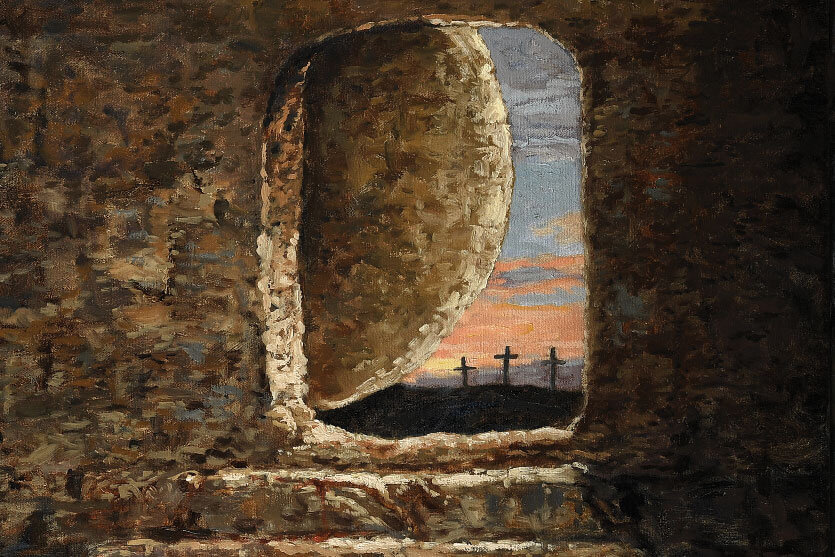PRAY
Loving Father, may I have the power to know the love of Christ that surpasses knowledge (Ephesians 3:18-19).
READ
After he received the piece of bread, Satan entered into him. Jesus said to him, “Do quickly what you are going to do.” Now no one at the table knew why he said this to him. Some thought that, because Judas had the common purse, Jesus was telling him, “Buy what we need for the festival”; or, that he should give something to the poor. So, after receiving the piece of bread, he immediately went out. And it was night.
John 13:27-30
Judas Iscariot comes to the point of no return. Having taken from Jesus’ hand “the piece of bread” intended for the honored guest of the meal, Judas still refuses Jesus’ love. Judas had already bargained with the chief priests to betray Jesus (Matthew 26:14-16), but there is something about this final rejection of love that gives Satan (Hebrew: Adversary) entrance into Judas’ life. John says that Judas goes out into the night.
Of course we know that it is night, as it is the night of Passover, but John is using “night” in a double sense. John wants readers to know that Judas has entered into the abysmal darkness of evil. Throughout the Gospel of John there is the ancient, epic battle between the children of light and the children of darkness. Jesus is God’s one true light giving light to all (John 1:3-5; 12:46). Jesus is the light of the world (John 8:12) and “this is the judgement, that the light has come into the world, and people loved darkness rather than the light because their deeds were evil” (John 3:19).
Judas had lived with Jesus for three years. He saw Lazarus walk out of the tomb. He saw Jesus still the violent storm, feed multitudes, cleanse lepers, give sight to the blind, and forgive sinners. Judas heard Jesus’ sermons as He spoke as a man had never spoken. Yet, Judas rejects Jesus. He is like many people who have come to an intellectual belief in Jesus, but they will not put their trust in Him. That is because to entrust their lives to Jesus would have profound implications for how they go on living. It is no longer an intellectual issue, but a volitional issue. So Judas has made up His mind not to receive Jesus’ love, not to entrust himself to Him.
Here again, we are face to face with the profound, inexplicable mystery of evil. Judas makes his last escape from the light of Jesus and descends into eternal “night”. The time has come for the ultimate battle between light and darkness, between good and evil: the cross!
As the apostle John writes his gospel he does not want to let the opportunity pass without inviting readers to turn to the light of Jesus: “While you have the light, believe in the light, so that you may become children of light” (John 12:36).
REFLECT
- What would it mean for me to believe in Jesus, to trust my life and my eternity to Him? What might be some implications of this for me?
O most merciful Redeemer, Friend and Brother, may I know Thee more clearly, love Thee more dearly, and follow Thee more nearly, day by day.
Richard of Chichester (1197-1253)



